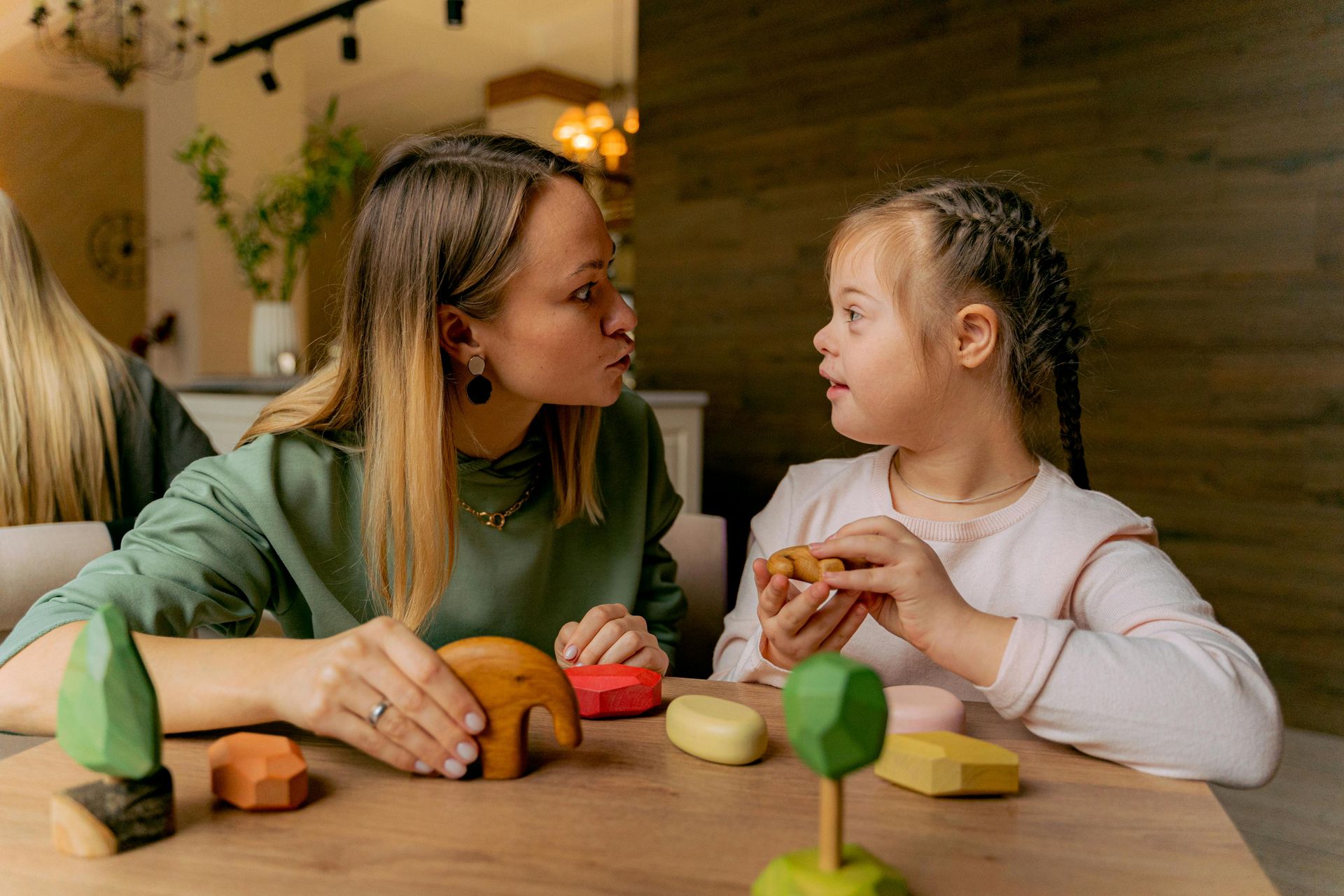Developmental Milestones and What to Look for in Boise, Meridian, & Nampa, Idaho
Every child develops at their own pace, but certain signs or delays can indicate the need for support from a Physical Therapist (PT), Occupational Therapist (OT), or Speech-Language Pathologist (ST). Early evaluation and intervention can help children thrive in play, school, and daily life.
Physical Therapy (PT)
Focus: Gross motor development, strength, coordination, balance, and mobility.
Signs PT may help:
- Delayed motor milestones: Rolling, crawling, sitting, standing, walking later than expected
- Balance or coordination issues: Frequent falls, trouble navigating stairs or playgrounds
- Low strength or endurance: Tires easily during play, struggles with climbing, jumping, or running
- Muscle tone concerns: Persistent stiffness or low muscle tone affecting movement
- Unusual movement patterns: Toe-walking, “W-sitting,” or asymmetrical gait
Benefits of early PT:
- Builds strength, coordination, and stability
- Supports developmental milestones
- Prevents long-term orthopedic issues
- Promotes independence in play and daily activities
Occupational Therapy (OT)
Focus: Fine motor skills, sensory processing, self-care, and functional independence.
Signs OT may help:
- Fine motor delays: Difficulty with grasping, using utensils, scissors, or buttons
- Sensory sensitivities: Overreacting or underreacting to textures, sounds, lights, or movement
- Self-care challenges: Trouble dressing, feeding, brushing teeth, or toilet training
- Coordination difficulties: Trouble with hand-eye coordination or multi-step tasks
- Attention or focus issues: Difficulty staying on task during play or school activities
Benefits of early OT:
- Improves independence in daily routines
- Builds fine motor coordination for school readiness
- Supports sensory processing and focus
- Boosts confidence and participation in everyday activities
Speech Therapy (ST)
Focus: Communication, language, and oral-motor development.
Signs ST may help:
- Delayed speech or language: Limited vocabulary, trouble forming sentences, or following directions
- Speech clarity issues: Sounds are unclear or difficult to understand
- Social communication challenges: Trouble taking turns, maintaining eye contact, or understanding social cues
- Feeding or swallowing concerns: Difficulty chewing, swallowing, or tolerating textures
- Stuttering or voice concerns: Frequent repetitions, prolonged sounds, or pitch/volume issues
Benefits of early ST:
- Enhances communication and social connection
- Supports safe feeding and swallowing
- Improves expressive and receptive language skills
- Boosts confidence in school, play, and social settings
Next Steps for Families
- Observe and track concerns: Note what you see at home or school.
- Consult your pediatrician: Share concerns and ask about referrals for PT, OT, or ST.
- Schedule an early evaluation: Assessments identify strengths, challenges, and a personalized therapy plan.
- Act early: Early intervention often results in faster progress and better long-term outcomes.
- At SkyBreak Therapy, our PTs, OTs, and Speech Therapists work together to provide fun, family-centered, and evidence-based therapy
. If you notice any of these signs, don’t wait — we’re here to help children thrive!




